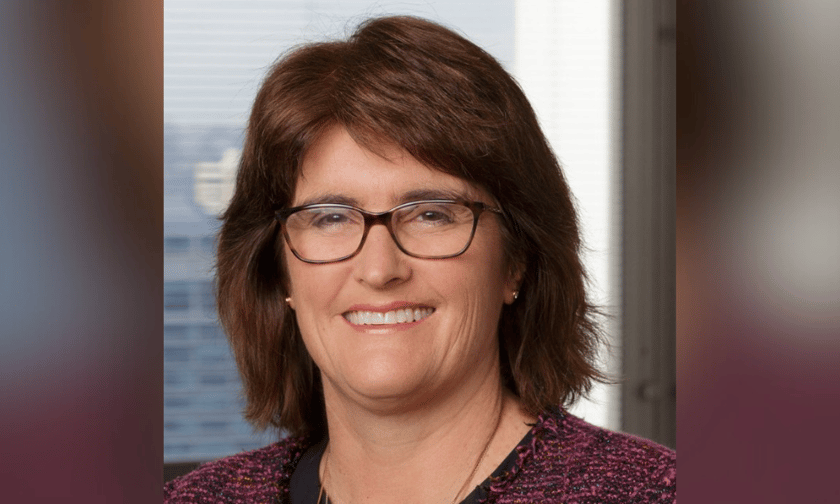

After announcing its first interest rate pause of 2024, Reserve Bank (RBA) governor Michele Bullock (pictured) faced tough questions from journalists in a live interview covering everything from mortgage holders to the effect Taylor Swift has on inflation.
This marked a new chapter for the central bank following the changes laid out in last year’s RBA review that aimed to bring transparency to cash rate decisions.
The RBA may have delivered its punctual statement issued at 2.30pm on the first Tuesday of the month, which came drenched in its typical economic jargon, but things were markedly different elsewhere.
The RBA’s Statement on Monetary Policy was decidedly stripped back – at least in its initial overview.
Under a section titled ‘In Brief’, the statement read in plain English:
“Inflation is falling but is still high. It is important to bring inflation down because high inflation hurts all Australians. The Board’s interest rate decision supports the gradual return of inflation to the midpoint of our 2%–3% target range.”
One hour later, Bullock fronted the press with that message in mind and brought with her a straight-talking candour.
“Everyone is focused on inflation. And for that reason, what we've seen is a very rapid rise in interest rates over the last 18 months to two years,” she said.
“And it's been rapid because first of all, we had to remove all of that stimulus that we had from the pandemic… which means we have to get straight into restricting territory. That said, inflation has fallen.”
Addressing the nation, Bullock empathised with those “doing it tough” with the rising cost of living.
“I really understand that the mortgage holders are hurting. But the biggest issue that’s confronting not just mortgage holders but everyone, is inflation,” Bullock said. “The fact that inflation is so high in so many parts of their lives at the moment is really hurting.
“We’ve made good progress but there’s more work to be done. The best thing that we can do with our tool is to help control cost of living by getting inflation back down.”
Looking at the forecasts, the RBA has projected to make between two and three rate cuts this year as inflation – the word of the day – tracks down.
“We expect that inflation will return to the target range of 2%-3% by 2025 and reach the midpoint of the target range in 2026,” Bullock said.
However, Bullock tempered expectations, carefully avoiding moving towards possible rate cuts or rate hikes.
“While there has to be a cash rate forecast, I emphasise the word ‘assumption’. It’s a forecast, not an expectation and it’s something to work with.”
When asked by a Reuters journalist about how confident she was about getting inflation sustainably within the band on a scale of one to 10, Bullock replied, “five”.
“We are not ruling out what we might have to do next. We're not ruling anything in or out,” she said. “We are focused on bringing inflation down and we still think the risks are balanced. But the further out we go with our forecast, the more uncertainty there is around them.”
While the RBA has kept the cash rate on hold for now, the question of when (or if) a cut is coming remains a hot topic.
Many mortgage brokers are also bullish on cuts, as is the general market.
However, Bullock emphasised that the RBA board was not swayed by the noise.
“We don’t think about market pricing as being a forecast for the cash rate. The markets make their own decisions, and they are putting their money where their mouth is,” Bullock said.
While Bullock may have brought the new into the new year, one thing that made a return was former RBA governor Philip Lowe’s “narrow path”.
“My predecessor used to talk about the narrow path. I feel like we are potentially on that narrow path. But I also feel that we need to just remain very alert to the risks,” Bullock said.
“If inflation does not move back into target within a reasonable time, and if it's still well above our target band… it will ultimately not be good for the economy.”
Throughout the 44-minute press conference, journalists from across the media landscape pressed the governor across a range of issues.
In response to a question about the impending Stage 3 tax cuts, which were heavily debated in parliament only hours before, Bullock said she doesn’t think the issue has any implications for the RBA’s forecast.
“Tax cuts are not material issue for inflation, spending.”
However, the Sydney Morning Herald’s Shane Wright threw a question left of field, asking the effect interest rate rises have on services inflation. This includes services like insurance, legal fees, electricity, and Taylor Swift tickets.
“Taylor Swift inflation hit my family again last night when my daughters tapped the bank of Mum and Dad to pay for the latest releases. Is the huge interest in Ms Swift an example of a type of services inflation… And how is services inflation impacted by monetary policy?” asked Wright.
“A colleague said to me that services inflation is everything you can’t drop on your foot… Monetary policy works on the demand side… it doesn’t directly impact the services side. But it can indirectly impact because these costs go into businesses costs,” Bullock said. “To the extent demand is tempered, it tempers the ability to pass on costs.
“On Taylor Swift tickets… from my own experience, my kids put money away to do it. They forewent other things in order to be able to afford Taylor Swift. I think people are deciding what’s important to them and what’s not… Clearly to a lot of people, Taylor Swift is very important.”
To view the full interview, click here.
